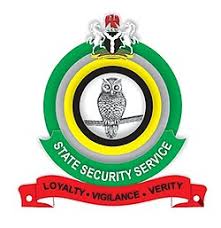
DSS Demands Removal of Sowore’s Tweet, Sparks Legal Pushback

Abuja – September 7, 2025:
Nigeria’s Department of State Services (DSS) has formally written to X Corp., urging the removal of a tweet by activist Omoyele Sowore that allegedly disparages President Bola Tinubu. Sowore and his legal team have strongly pushed back, deeming the move unconstitutional and pledging legal resistance.
In a letter dated September 6, signed by B. Bamigboye on behalf of the DSS Director-General, the agency accused Sowore’s August 25 tweet of being “misleading, offensive, and capable of threatening Nigeria’s national security.” The post criticized the President’s assertion that “there is NO MORE corruption” in Nigeria and referred to him as “criminal.”
The DSS cited violations of Section 51 of the Criminal Code Act, Sections 19, 22, and 24 of the Cyber Crimes Act 2025, and relevant provisions under the Terrorism (Prevention and Prohibition) Act 2022, warning that both Sowore and X Corp could face criminal liability.
A 24-hour ultimatum was issued: remove the tweet and deactivate Sowore’s account or face “far-reaching and sweeping measures.”
Sowore, via his verified X account, confirmed receiving a notice from X about the DSS’s request—but emphasized his refusal to comply. “One option I will NOT be taking is deleting that tweet,” he declared, thanking X for the notification.
X Corp has indicated that it has not taken action against the post. The company underscored its transparency principle of notifying users when legal requests are made and encouraged Sowore to seek legal counsel or explore resolution options.
Sowore’s legal team, led by human rights lawyer Tope Temokun, sent a letter to X’s legal and policy team arguing the DSS’s demand is “unlawful, unconstitutional, and without legal foundation.”
They cited Nigeria’s Section 39(1) of the Constitution and Article 9 of the African Charter on Human and Peoples’ Rights (domesticated into Nigerian law) as guarantees of freedom of expression.
Court precedents, including Director, SSS v. Agbakoba (1999) and Arthur Nwankwo v. The State (1985), were referenced to dispel any notion that the DSS has unilateral censorship powers.
Temokun warned that compliance by X would implicate the platform in violating both Nigerian and international human rights standards. He affirmed their readiness to pursue redress through national and international channels if necessary.